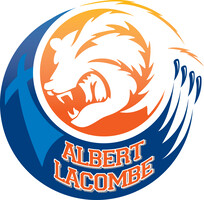SOCIAL STUDY GUIDE FOR GETTING STARTED, CHAPTER ONE, AND CHAPTER TWO
1) Democracy means:
a) voting in elections
b) protection of rights and freedoms
c) equality
d) decisions made by elected representatives
e) freedom to disagree
f) majority rule
g) citizen participation
2) In Canada, we are ruled by democracy. More specifically, REPRESENTATIVE DEMOCRACY.
3) Values: principles about how people should act. In Canada, we have many similar values that our elected representatives follow.
4) Diversity: means to respect people from varied cultures and backgrounds. Our government makes sure to value all different types of people, religions, race, gender.
5) There are 4 main democratic principles. These principles are the main supports of democracy. They are:
a) justice – fair treatment of individuals and groups
b) equity – individuals and groups have the same opportunities in life
c) freedoms – people have the right to speak and think as they wish
d) representation – elected representatives act on our behalf
6) Democracy is a two-way street. We receive precious rights and freedoms and in exchange we take on the responsibility to participate and contribute.
7) There are 3 levels of government. They are:
a) local government – cities, towns, villages - Mayor
b) provincial government – provinces - Premier
c) federal government – the country – Prime Minister
8) Citizen: this is either a person who is born in the country or who immigrates here and obtains citizenship through courses and exams.
9) GOVERNMENT MAKES LAWS ----------PEOPLE ELECT REPRESENTATIVES TO GOVERNMENT
10) WHY DO WE NEED GOVERNMENT:
- They provide services – hospitals, police, rescue, schools
- They protect our rights and freedoms – courts, lawyers
- They provide leadership – environment, resources, relations
11) FACT: something that can be proven to be true
12) OPINION: what someone believes, how they feel, what they think
13) CANADIAN CHARTER OF RIGHTS AND FREEDOMS:
- is a legal document
- protects our rights and freedoms
14) The Charter protects our INDIVIDUAL RIGHTS and COLLECTIVE RIGHTS
15) INDIVUDAL RIGHTS: are rights that you are entitled to as a person.
16) COLLECTIVE RIGHTS: protect a group. For example: francophone schools, native groups
17) EQUALITY: means treating everyone the same regardless of factors such as gender, race, age, religion. For example: both gender can apply for a job, all religions can practice
18) EQUITY: making accommodations so that everyone, even those with a disability, have an equal share.
EQUALITY - -------------------------------------------------------------------EQUITY
Both boys and girls can go to AL a ramp is provided for Jaina
All kids can read books in the library braille books are provided for the blind
Everyone can enter Safeway to shop a seeing eye dog is permitted for the blind
19) LANGUAGE RIGHTS: English and French are both official languages in the country.
20) Democracy only works if the citizens PARTICIPATE.
21) WHAT ARE OUR DEMOCRATIC RIGHTS?
- All Canadian citizens are allowed to vote and run for office
22) REPRESENTATIVE DEMOCRACY: citizens elect people to represent them in government. These people make decisions on behalf of citizens.
23) RULE OF LAW: this is a basic part of democracy. It means that laws apply to EVERYONE.
